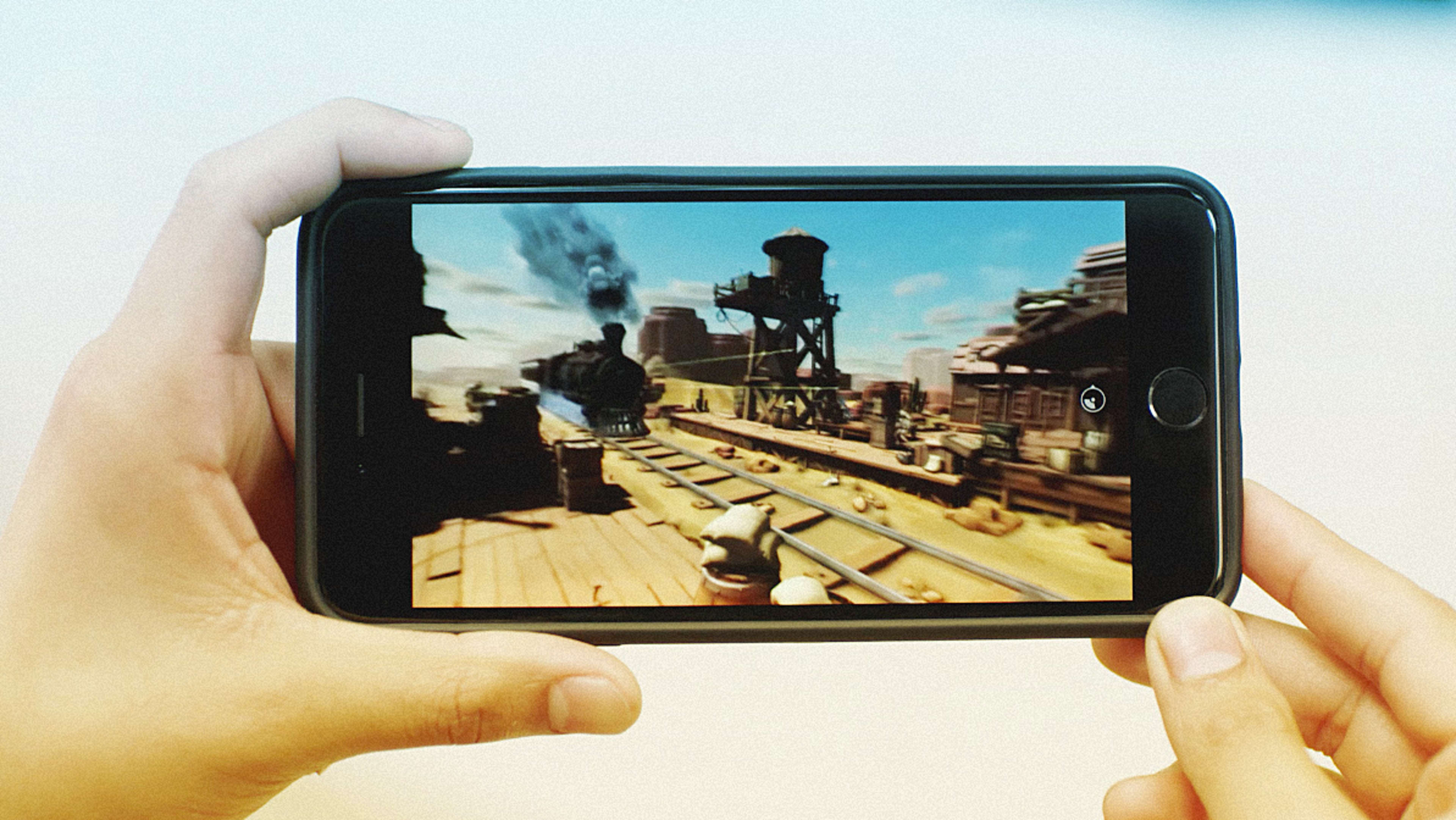At the moment augmented reality is still a clunky, phone-in-front-of-your-face experience, but today Facebook promised to transform that experience when it announced a new AR platform. And you can be sure that quite a few folks at Apple were watching with great interest the live stream of the F8 developers conference in San Jose, California, where the new platform was introduced with plenty of striking visual aids.
Onstage at the conference, Facebook founder and CEO Mark Zuckerberg and some of his top aides energetically kicked off what is sure to be a new platform war—one that will soon be joined by Apple and plenty of other competitors.
“This space will get crowded though, and I expect both Apple and Google to also bring these functionalities to their camera apps and offer developers the chance to build AR experiences on their platforms as well,” Creative Strategies analyst Ben Bajarin told Fast Company in an email.
Facebook made a strategic decision to be the first tech giant to launch an AR platform when the hardware and technology is still in its nascent stage. In Facebook’s version of AR, a user will hold their phone in front of their face and watch as all kinds of moving imagery and information is superimposed over the picture of the real world seen by the camera. Yep, kinda like Pokémon Go.
Facebook said it will provide developers with precise location, object recognition, and 3D effects tools they need to start building their own custom AR experiences. That could mean anything from AR games to a retailer placing a data card over a product in front of the camera.
“Facebook is smart to give developers the tools to build AR experiences and give those tools to a wider developer community,” Bajarin says. “They are approaching this as a true platform play, which is smart.”
It seems likely that Apple will have to weigh in with its own AR platform sooner or later—I’m guessing sooner. Two media outlets have already reported that Apple is working on prototypes of some kind of AR glasses. This is unsurprising; the company has likely been working on glasses for a couple of years. The press reports say the company already has “hundreds” of engineers working on its own AR effort.
Apple isn’t known for being first in emerging technologies, preferring to hang back and drop in when it knows it can deliver a product or service better than everybody else. Entering the market with a cool-looking and high-functioning set of AR glasses would be one way to outshine the competing platforms. But Apple may not be able to wait until the core technologies needed for such glasses become available at mass market levels.
In the near term, Apple might begin adding new camera technology to the iPhone that can support AR apps, both its own and those from third-party developers. Fast Company previously reported that Apple will source 3D camera technology from Lumentum for its 10th anniversary iPhone 8, which will likely be announced this fall.
Facebook’s AR announcement today may end up serving as the ideal opening act for Apple, says Technalysis Research president Bob O’Donnell. Facebook’s experience in its current form is built to work with the camera on the user’s phone, he says. “So Facebook announces a 2D Snapchat-like experience with photo filters and calls it AR.” Facebook will have introduced the AR concept to a mass audience with an experience that Apple can best by leveraging a true 3D camera in the next iPhone (or, possibly, with the dual cameras in the iPhone 7 Plus), says O’Donnell.
Zuckerberg may also have lowered expectations around AR—which, after all the overly hyped Magic Leap coverage, has led many people to anticipate a headset-wearable experience. “So when Apple announces an AR experience that works on the phone instead of an AR headset, it won’t be as much of a disappointment,” O’Donnell says.
Creative Strategies’ Bajarin believes that Facebook and Google are more capable than Apple at delivering cloud-based augmented reality content from the cloud, which could be a big advantage. He also believes Facebook and Google have the edge in the machine learning needed to help identify objects and people in the real world, a key function in AR apps. And let’s not forget Microsoft, which arguably has more experience in the space than anyone, after having developed the first major AR headset with the HoloLens.
Apple’s advantage lies in its ability to control far more of the hardware and software stack underpinning the AR experience—the apps, the phone, and the OS. Apple may begin building AR features deep in iOS, so that it could begin to “augment” lots of different aspects of the phone experience, like Siri does. By building AR into the OS, Apple might enable a richer experience that’s optimized for the iPhone.
It’s even possible that Apple could begin talking about its AR strategy as soon as its upcoming developer conference, WWDC, in June. Since Apple likely wants to speak to developers en masse and in person about what could become a major new platform, it may choose to at least start the conversation, as opposed to waiting until next year’s conference.
If it does, it will likely lay out a wade-into-the-water approach that will look something like what Facebook announced today. That is, the AR experience will be seen through the display of an iPhone, not through a face wearable. But that might be just the thing to get developers and consumers used to the concept, without getting too exotic with the hardware.
Whatever the shape of the product, Apple will try to make a grand entrance into the AR market. It won’t be first in, so it will have to infuse the technology with simplicity, style, and a wow factor that turns consumers on and makes the competing platforms seem inferior.
Recognize your brand’s excellence by applying to this year’s Brands That Matter Awards before the early-rate deadline, May 3.
